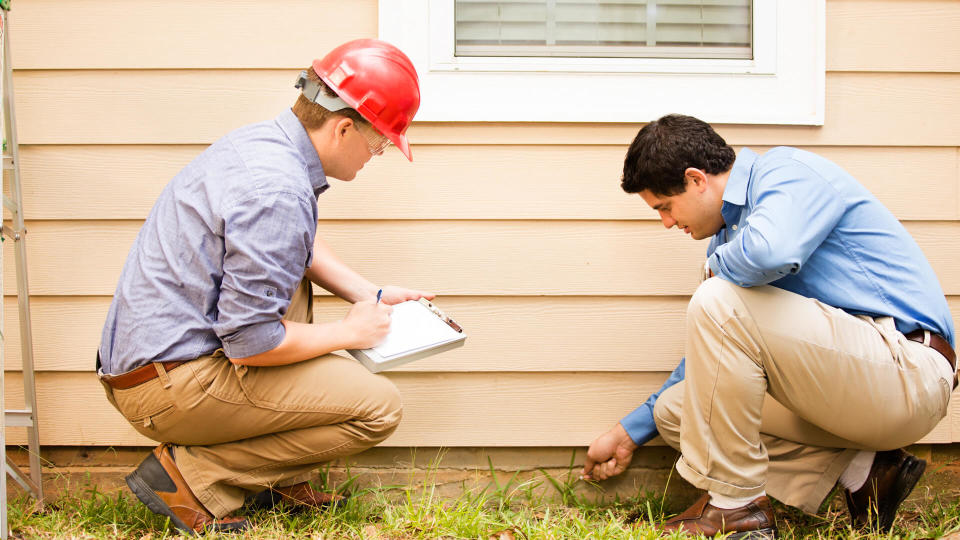8 Major House Expenses That Come Up Every Decade — And How To Afford Them

Owning your home isn’t cheap. While typically a sound investment, it’s not one that allows you to sit back and do nothing while building equity.
“Homeownership comes with its pleasures and not so pleasant issues,” said Tammie Carter, a real estate advisor at Engel & Völkers Atlanta. “There are numerous items that you will need to plan for in the future to be replaced to preserve your assets.”
Read Next: Here’s When To Buy a New House, According to Kevin O’Leary
Check Out: 5 Unusual Ways To Make Extra Money (That Actually Work)
Being hit with a major home expense when you’re not prepared to foot the bill can quickly become a financial disaster. Therefore, it’s important to have an idea of common costs you may incur, so you’re not blindsided.
Taking care of your home is a big responsibility, so make sure you’re prepared to handle any expense that comes your way. Here’s a look at eight major house expenses identified by Carter, along with cost estimates sourced from HomeAdvisor.
Roof
National average roof replacement cost: $9,393
“Roofs typically last 20 to 30 years, some longer,” Carter said. “Have your roof inspected every decade or so and replace any damaged shingles, inspect the flashing and address any leaks to prolong the roof’s life.”
If your roof has already outlived its lifespan, is sagging, covered in moss or mold, or flashing, gutter guards or fascia have cracked or disappeared, consider this a sign a new roof is needed, according to Westfall Roofing.
Learn More: Nearly Half of Americans Struggle To Pay Their Utility Bills: 5 Ways To Save
HVAC System
National average HVAC system replacement cost: $7,000
“HVAC systems typically last around 10 to 20 years,” Carter said. “Regular maintenance can help extend the system’s life, but [it] will eventually need replacing.”
Getting ahead of an HVAC replacement can help you avoid having to avoid a seriously hot or cold house until it can be replaced. A few signs it’s time for a replacement include air flow out of the vents seeming a bit off, strange noises coming from the unit, leaks around the unit and an increase in your energy bill — for no apparent reason — according to Sears Home Services.
Appliances
National average refrigerator replacement cost: $1,000-$2,000
National average oven replacement and installation cost: $2,000
National average washer and dryer replacement cost: $445-$2,300 for a washer and $445-$2,100 for a dryer
“Appliances such as refrigerators, ovens, and washers typically lasts 10 to 15 years,” Carter said. “And by that time, most likely, they will have more energy efficient options that will help lower your long-term utility bills.”
Water Heater
National average water heater replacement cost: $1,312
“Water heaters typically last around 10 years,” Carter said. “Over time, they become less efficient and may even fail, leading to costly water damage.”
When it’s time to replace yours, she recommended upgrading to a tankless model for long-term savings.
Finding out your hot water heater is broken mid-shower isn’t pleasant, but there are a few warning signs to seek out. If your hot water has regularly become lukewarm, the water isn’t clear, there’s water around the base and you hear percussive noises, you may need a new water heater, according to Armor Plumbing.
Paint and Siding
National average cost to paint a house: $3,149 for a 1,500-square-foot-home
“Paint and siding may appear cosmetic, but it actually protects your home from the elements, so it’s essential to maintain it,” Carter said. “Typically, siding can last up to 50 years but may require periodic painting and repair every eight to 10 years.”
It’s also possible you’ll only need to touch up certain parts of your exterior paint. Costs for this vary, but average $1-$3 per square foot for both vinyl and wood siding.
Plumbing
National average cost to fix leaking or burst pipes: $150-$350
National average cost to replace plumbing: $350-$2,000
“Over time, pipes can corrode or leak, and fixtures can wear out,” Carter said. “Major plumbing updates every 10 years or so can help prevent costly water damage and improve efficiency.”
Windows
National average cost to install new windows: $7,239
“Unless you have vinyl windows with a lifetime replacement warranty, they may need replacing every 20 years or so,” Carter said. “And newer, energy-efficient windows can help reduce heating and cooling costs, making them a worthwhile investment.”
If your windows are drafty, hard to operate, let in unreasonable levels of unwanted noise, have an outdated look or are otherwise damaged, you might need to replace them, according to Pella.
Foundation
National average cost to repair foundation: $5,013
“Foundation issues can develop over time due to shifting soil or moisture,” Carter said. “Keep an eye on your foundation and address any cracks or signs of settling.”
She said early detection can help prevent expensive repairs later on.
Tips To Afford Major House Expenses
Take a deep breath if you’re feeling overwhelmed by the average costs of home repairs listed above. Carter said the best way to pay for these expenses is to create a home maintenance account and deposit money into it on a monthly basis.
“If the time comes when a major repair expense happens, you are ahead of the game,” she said. “If, by chance, you prefer, you can also consider a home equity line of credit to fund the repairs quickly.”
However, she said a home equity line of credit is attached to fees and interest, so it’s best to save as much as you can in advance.
More From GOBankingRates
This article originally appeared on GOBankingRates.com: 8 Major House Expenses That Come Up Every Decade — And How To Afford Them

 Yahoo Finance
Yahoo Finance 